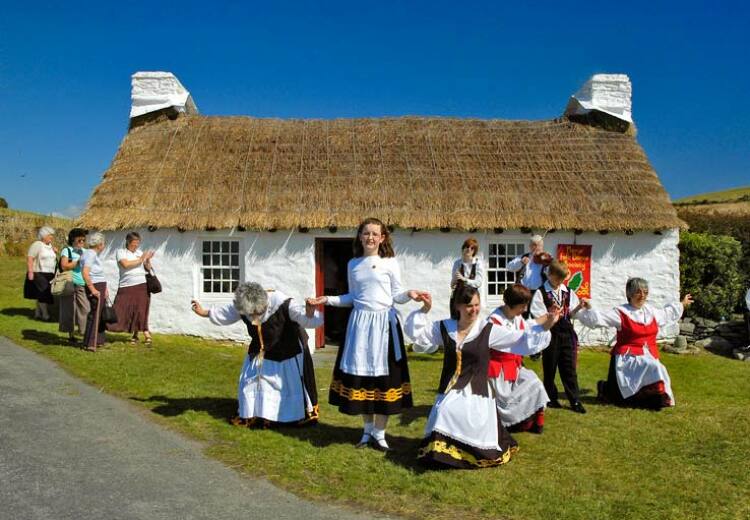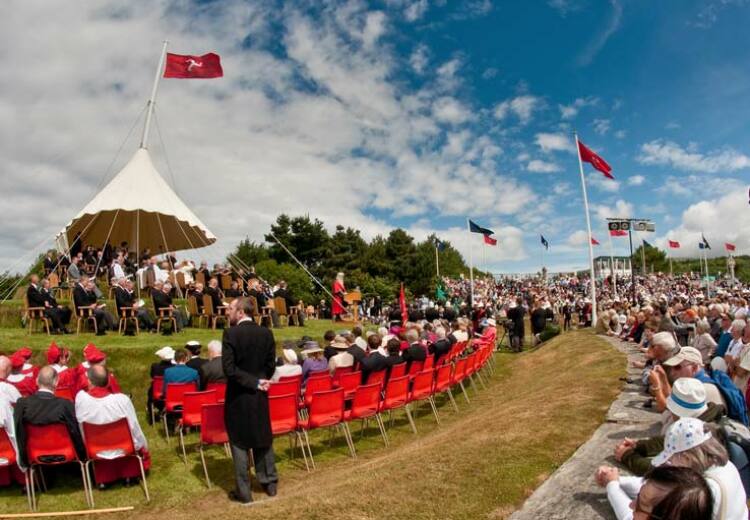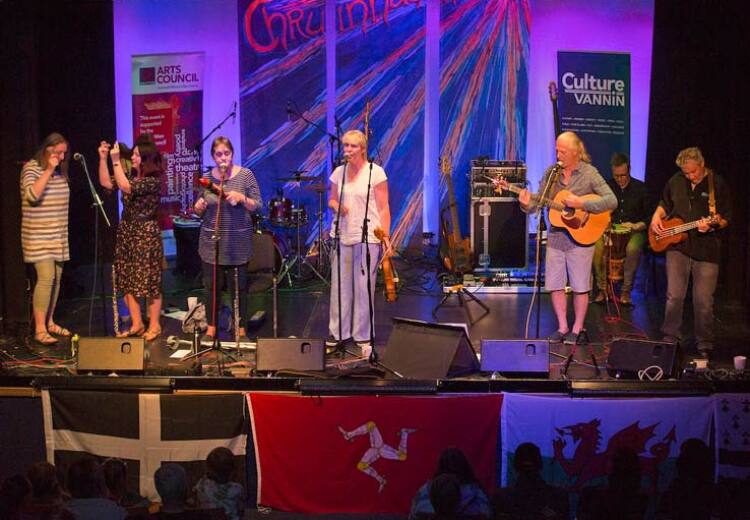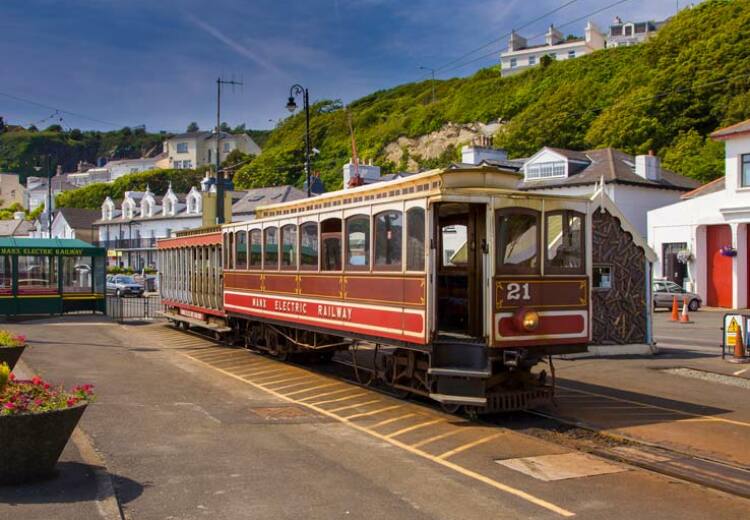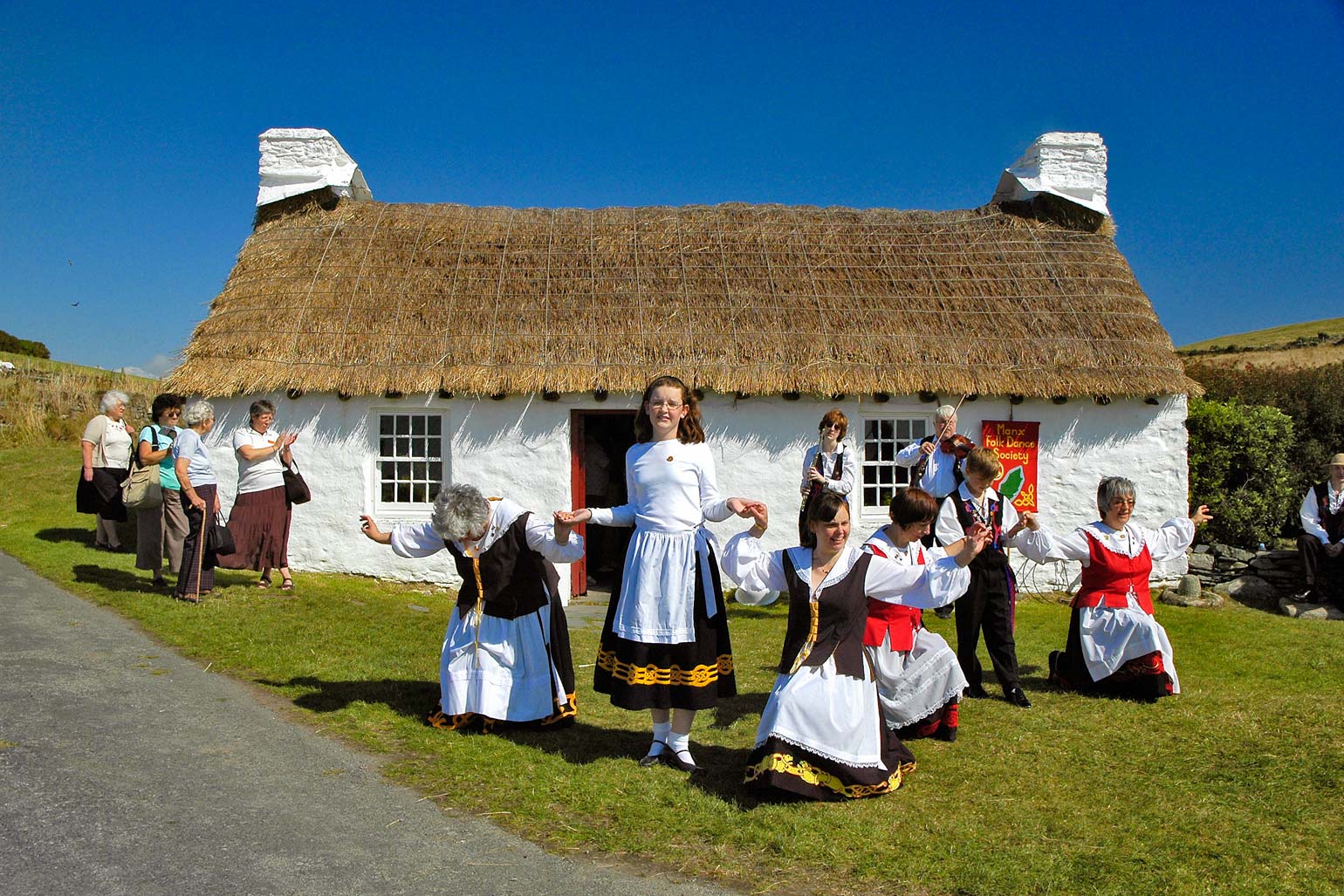
Manx customs have inevitably been influenced by the mixed population on the Island, from Pre-Celtic, Irish Gaelic and Scandinavian peoples to immigrants from Lancashire and Derbyshire (followers of the Stanleys) and Scots smugglers from Galloway. May Day customs, for example, and the New Year's Day 'qualtagh' ('First Footer') are Celtic, whereas All Hallows Eve and the mythic battle between summer and winter derive from Scandinavian traditions. The emergence of Methodism in the 18th Century suppressed the old traditions, leaving the Celtic-Viking culture of the Island in much reduced and fragmented state.
Historical Festivals
The ancient Manx Celts venerated natural objects such as water, trees and hills, and also the elemental forces of nature, the seasons, the sun and moon, light and darkness, as these were the forces which shaped their lives. Typically for a farming and fishing community, there was a preoccupation with the weather, but it was faeries, bugganes, spirits and witches which were held responsible for mishaps, diseases afflicting family and livestock, and crop failures. These supernatural forces were felt to be strongest at the onset of winter at 'Samhain', the start of the Celtic New Year (1st November or 12th November by the old calendar).
Wheat has been grown for at least 4,000 years on the Island, but oats and barley grow better in most places and came to be used more often for bread. It is interesting to note the hierarchical language used to refer to produce. Hay was 'saved' in a wet midsummer and potatoes were 'dug' or 'picked', but corn was 'harvested' with much ritual.
It is customary on the Isle of Man to refer to all saints' days as feast days.
The Island had 750 fairs up to the 18th Century, but by 1940, only three remained: Hollantide, Michaelmas and St John's Fair on (5th July - now Tynwald Day). By law, fairs were never held on Sunday, so when a calendar date for a fair fell on a Sunday, the fair was moved to the following Monday.
Visiting wells was a strong custom but this too has sharply declined. Sunday was a favoured day, but the busiest days at wells, particularly at curing wells, were Ascension Day and the first Sunday in August. Before they acquired associations with saints, at the behest of the Church, wells were thought to be the habitation of water spirits, some malevolent, who were venerated, feared and placated by offerings. A variety of other creatures and beings was also thought to live in them. Rag and Pin Wells represent a dual Christian/pagan tradition. The usual custom was to throw in coins, pins, beads or buttons, then drink the water, then say a prayer (a Christian invocation), then add to its decoration or place a votive offering such as a flower or rag on a nearby bush or tree. The supplicant's ailments will be left behind with the offering, and disappear as it decays (a pagan belief). Wells near summits were particularly sacred.
Folk and Ecclesiastical Traditions
The Island was Catholic before the Reformation, but became Protestant after it. From the 18th Century, Methodists opposed Celtic customs strongly, and the early Wesleyans took particular exception to Celtic music and dancing, and the use of the Manx language. Churchgoers using Manx were regarded suspiciously, Manx hymns were discouraged or scrutinised carefully in translation, and traditional Manx services, like the Christmas Eve Oie'l Voirrey, were replaced or subjected to considerable modification.
Discover Some of Our Annual Ceremonies & Festivals
Hop-tu-Naa is an ancient festival celebrated on the Isle of Man on 31st October, the date of the Celtic New Year's Eve. Read
The annual Mananan International Festivals, established in 1975, are among the Isle of Man's most prestigious cultural events, and rank among the finest festivals in the British Isles. Read
The Isle of Man hosts many traditional ceremonies throughout the year. Read
Dating back to Viking times, the Tynwald preserves the Old Norse custom of publicly announcing all new law, in both Manx and English. Read
Yn Chruinnaght (meaning 'the gathering') is a festival of events including arts, crafts, dance, language, lectures and music and is a celebration of Manx culture. Read




